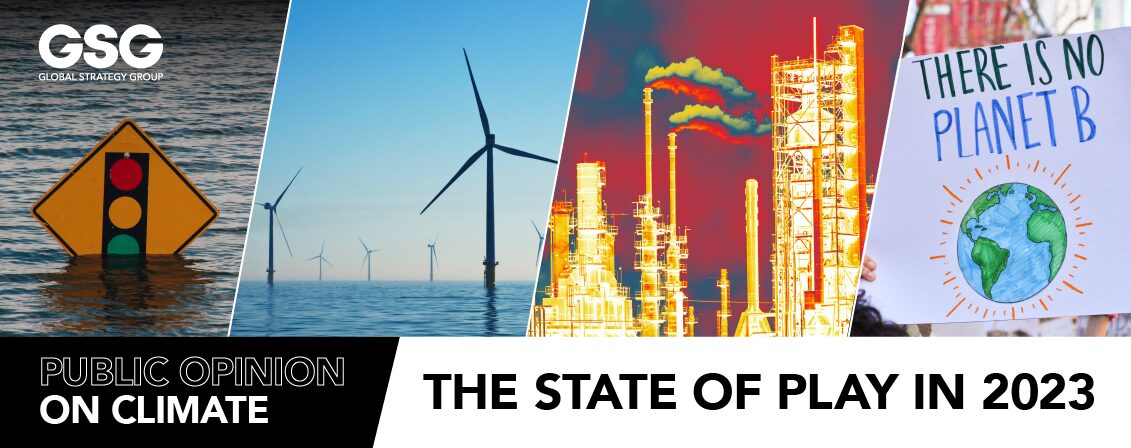
In celebration of Earth Day, Global Strategy Group is excited to share a special report of our latest climate research insights.
Led by GSG’s Andrew Baumann and Melissa Bell, their research takes an in-depth look at voters’ current attitudes and opinions on climate and energy issues and the two parties’ energy agendas, while providing messaging guidance to advance progressive action on climate.
Key Findings Include:
- Climate and energy are winning issues for Democrats, especially with the swing voters who will decide the 2024 elections. While swing voters aren’t with us 100% on every climate and energy-related issue, these data could not be clearer: swing voters strongly prefer the Democratic approach of supporting clean energy and climate action over Republicans’ focus on boosting fossil fuel production – and this is something that moves votes towards pro-clean energy Democrats.
- Voters increasingly see climate change as a major problem, and they want to see strong action on climate. Three-quarters of voters, including three-quarters of swing voters, believe that climate change is at least a major problem, up 5 points from two years ago. Moreover, over two-thirds believe that climate change is already having a serious impact on the country. As a result, a large majority of voters want to see the U.S. government take strong action to combat climate change.
- Voters reject false choice between the environment and the economy, and they strongly support stronger environmental regulations – including EPA’s new clean cars rule. A huge majority agrees that we don’t have to choose between building our economy and protecting our environment. Moreover, voters very much like “environmental regulations” (though they like “safeguards” slightly better). Specifically, nearly three-quarters of voters support the EPA’s new vehicle emission standards, even when we make it clear that the new rules mean that EVs will need to be two-thirds of new car sales by 2032.
- Voters not only believe that clean energy will be better for our health and futures, but for the economy and jobs and electricity prices as well. By huge margins, voters believe that clean energy will be better than fossil fuels for the health of American families and future generations of Americans. But solid majorities also believe that clean energy has more potential to create quality American jobs (in both the short and long terms) and provides more affordable electricity.
- Voters support efforts to incorporate environmental justice into a transition to clean energy, but framing has a big impact on support. A plurality of voters agree that communities of color have been harmed more than other communities by pollution, but when we change the wording from “communities of color” to “low-income communities, including communities of color,” net agreement doubles. Similarly, a solid majority agree that as we move to clean energy, communities that have been most impacted by pollution (including low-income communities and communities of color) should receive a fair share of the investment. Again, however, net agreement doubles when we instead argue that “no community should be left behind” (including the communities of color that have been harmed the most by pollution from fossil fuels).